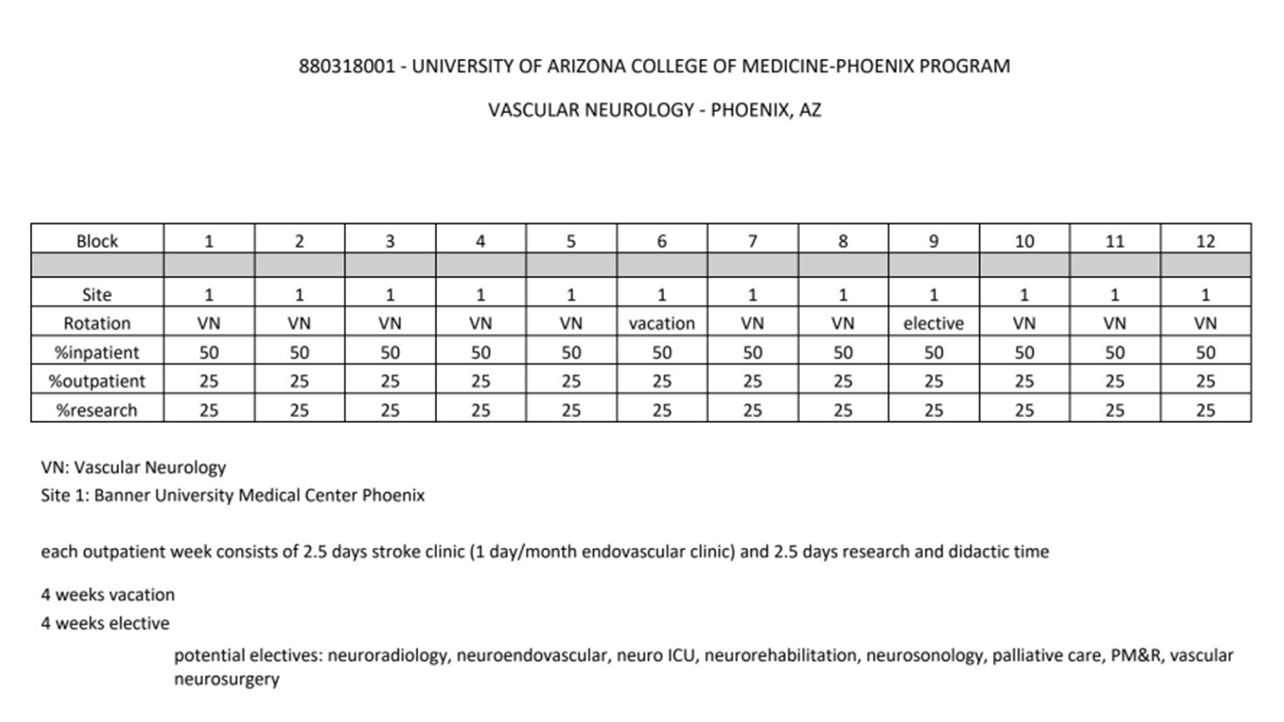The Vascular Neurology fellowship experience involves one year of clinical training and is designed to provide specialized patient care experience and responsibility. Clinical care includes weekly continuity clinics, inpatient rotations at the primary site, a variety of didactics and conferences, electives, and research opportunities.
Didactics
The general didactic curriculum includes the following:
- Weekly lectures with vascular neurology faculty covering core competencies of patient care and medical knowledge (as outlined in goals and objectives)
- Biweekly lecture with one of the following team attendings: neuroendovascular, neuroradiology, neuro intensive care, vascular neurosurgery, vascular surgery (CEA, TCAR, stent and spinal ischemic complications of aortic repair), cardiology (exposure to TEE, ILR placement), cardiothoracic surgery (fundamentals of ECMO, TAVRs, heart transplant, TAH, and the implications/risk of each for stroke), neurorehabilitation, palliative care, neurobehavioral regarding vascular dementia, psychiatry for post-stroke depression and anxiety or other psychiatric sequelae, PM&R regarding treatment of post-stroke weakness and spasticity, neurosonology, epileptologist for EEG in stroke, anesthesiology and stroke, rheum diagnoses and stroke including vasculitis, Neuropsychologist for NP testing after stroke, PT for driving after stroke, hematology for hypercoagulable states and stroke, headache specialist for migraine and other headaches and stroke risk
- Quarterly stroke journal club
- Quarterly department grand rounds
- Quarterly stroke M&M conference
- Stroke neuroradiology and endovascular radiology bimonthly or monthly conference
- At least one annual conference with neuropathologist to review findings for ICH and ischemic Stroke
Neurology Residency - Sample Schedule
